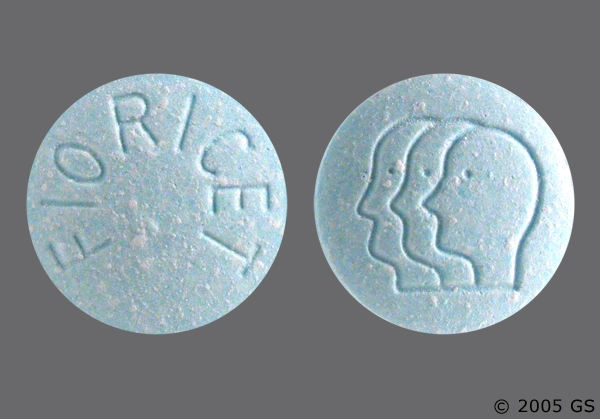Butalbital: Barbiturates may be habit-forming: Tolerance, psychological dependence, and physical dependence may occur especially following prolonged use of high doses of barbiturates. The average daily dose for the barbiturate addict is usually about 1500 mg.
As tolerance to barbiturates develops, the amount needed to maintain the same level of intoxication increases; tolerance to a fatal dosage, however, does not increase more than two-fold. As this occurs, the margin between an intoxication dosage and fatal dosage becomes smaller.

The lethal dose of a barbiturate is far less if alcohol is also ingested. Major withdrawal symptoms (convulsions and delirium) may occur within 16 hours and last up to 5 days after abrupt cessation of these drugs. Intensity of withdrawal symptoms gradually declines over a period of approximately 15 days.
Treatment of barbiturate dependence consists of cautious and gradual withdrawal of the drug. Barbiturate-dependent patients can be withdrawn by using a number of different withdrawal regimens. One method involves initiating treatment at the patient’s regular dosage level and gradually decreasing the daily dosage as tolerated by the patient.
Fioricet Warnings
Fioricet carries a black-box warning cautioning users about the link of acetaminophen to acute liver failure. In some cases, users of Fioricet have needed a liver transplant; in other cases, use of Fioricet has proven fatal.
Most problems have occurred with an acetaminophen dose of more than 4,000 mg a day. Those affected are often taking more than one product containing acetaminophen at the same time or have underlying liver disease.
Another caution concerns butalbital, which may be habit-forming and therefore has the potential to be abused.
Those with a condition known as porphyria, a rare hereditary blood disorder, should not use Fioricet.
Pregnancy and Fioricet
Fioricet is in Pregnancy Category C, according to the FDA, which means that injury to the developing fetus cannot be ruled out. Even so, the benefits of the drug to the mother must be weighed against the potential risk to the unborn baby.
All three drugs found in Fioricet are found in small amounts in human milk, but the significance of that is not known.
You should discuss with your doctor whether to stop breastfeeding or stop taking the drug, weighing the benefits against the costs.
Fioricet Addictive
Fioricet (butalbital-acetaminophen-caffeine) is a combination drug indicated to treat tension or muscle contraction headaches. Butalbital has a generalized depressant effect on the central nervous system and, in very high doses, has peripheral effects. Acetaminophen has analgesic and antipyretic effects; its analgesic effects may be mediated through inhibition of prostaglandin synthetase enzyme complex.
Caffeine is thought to produce constriction of cerebral blood vessels. The most common side effects reported with Fioricet include drowsiness, lightheadedness, dizziness, sedation, shortness of breath, nausea, vomiting, abdominal pain, and intoxicated feeling. Butalbital, a barbiturate, may be habit-forming and potentially abusable. Therefore, extended and repeated use of Fioricet is not recommended.
Patients should take the drug only for as long as it is prescribed, in the amounts prescribed, and no more frequently than prescribed. Tolerance, psychological dependence, and physical dependence may occur especially following prolonged use of high doses of barbiturates. The average daily dose for the barbiturate addict is usually about 1500 mg. As tolerance to barbiturates develops, the amount needed to maintain the same level of intoxication increases; tolerance to a fatal dosage, however, does not increase more than two-fold.
As this occurs, the margin between an intoxication dosage and fatal dosage becomes smaller. The lethal dose of a barbiturate is far less if alcohol is also ingested. Major withdrawal symptoms (convulsions and delirium) may occur within 16 hours and last up to 5 days after abrupt cessation of these drugs. Intensity of withdrawal symptoms gradually declines over a period of approximately 15 days.
Treatment of barbiturate dependence consists of cautious and gradual withdrawal of the drug. Barbiturate-dependent patients can be withdrawn by using a number of different withdrawal regimens. One method involves initiating treatment at the patient’s regular dosage level and gradually decreasing the daily dosage as tolerated by the patient.